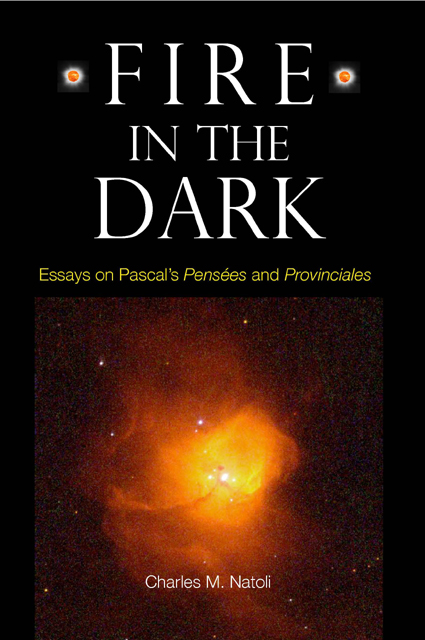7 - Mystic/Anti-Mystic: On Speech and Silence in Pascal’s Mémorial
Published online by Cambridge University Press: 17 March 2023
Summary
Père juste le monde ne t’a point connu, mais je t’ai connu.
Just Father, the world has not known you; but I have known you.
Pascal, the Mémorial (fr.S 742)[N]eque enim aut paucis aut multis verbis indicari potest quod indicari verbis non potest.
Neither with few nor with many words can you make known what words cannot reveal.
Saint Augustine, Letters (CCXXXI, 1)The Pensées of Pascal consists not only of fragments but of lacunae, and so it is well worth the attentive reader’s while to reflect on both. For what is true of every text—that in it lie both the said and the unsaid—is especially true of a fragmentary text, and even truer of one that is both fragmentary and unfinished. For the nonce, let us pass over what is said in Pascal, and instead linger briefly over the much less often plumbed unsaid. In the eternal silences of his lacunae’s infinite spaces, is there any absence that makes its presence particularly felt?
One of what we might call the Pensées’ speaking silences was briefly adverted to in chapter 6, on God’s justice. Why is there in Pascal’s apologetics no vindication of the ways of God to man proceeding from principles conformable to le sens commun? After all, in a universe sub deo iusto, evil— according to Augustine’s neo-Platonic metaphysics, itself an absence (of being) that makes its presence very much felt!—can be a prodigious stone of stumbling athwart the path to belief, or even block the way entirely, like the boulder athwart Hannibal’s alpine pass. A paradigmatic illustration of this evident verity is provided in the chapter “Rebellion” in Dostoyevsky’s Brothers Karamazov. There, Ivan’s recoil at the horrific sufferings of little children is not only famously stark and gripping in itself, but is a key premise to a powerful argument against philosophical theodicy of the kind found in Augustine, and, later, systematized by Leibniz—a kind of theodicy that Pascal conspicuously foregoes. For even if one affirms that evil must be tolerated by God so as to allow the achievement of greater universal good— in effect, Machiavelli’s “look to the results,” si guarda al fine, though restricted here from commission to permission—still, it is far from evident that any result, no matter how fine or fair, would be worth being procured at the price of the agonies of innocents.
- Type
- Chapter
- Information
- Fire in the DarkEssays on Pascal's <i>Pensées and Provinciales</i>, pp. 109 - 122Publisher: Boydell & BrewerPrint publication year: 2005

